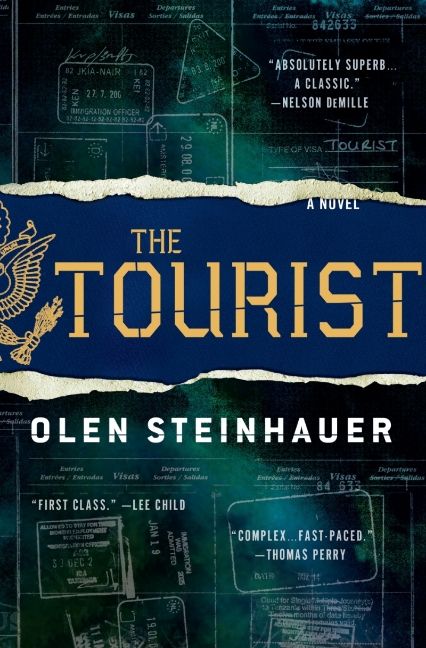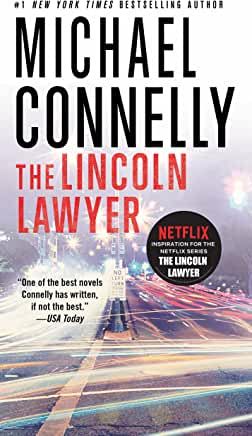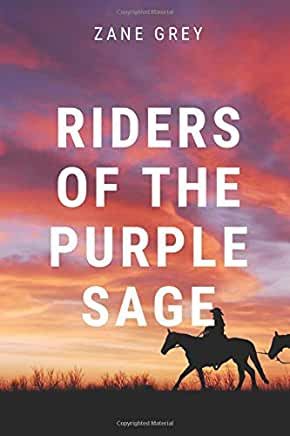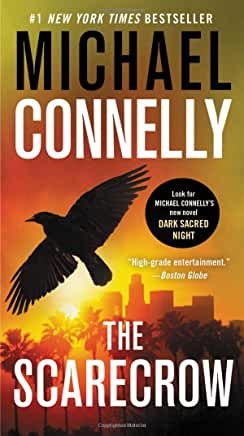What are you reading now?
-
@George-K said in What are you reading now?:
About ⅔ of the way through this. Good story, and the storytelling is "tighter" than it's been in a while.
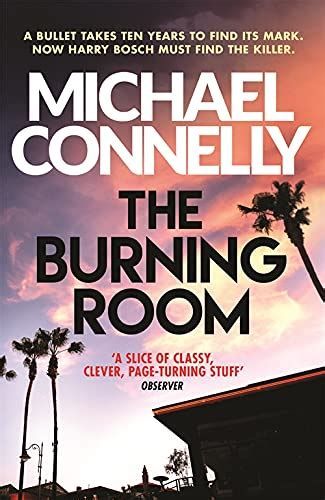
I am actually reading the very first one (The Black Echo) based on your suggestion. So far, so good.
@taiwan_girl said in What are you reading now?:
I am actually reading the very first one (The Black Echo) based on your suggestion. So far, so good.
The thing about the Bosch books is that, although they're "sequels" in the sense that each occurs later in the timeline, only two really depend on knowing what happened in the preceding book.
You can start with book #15 and you won't feel lost. There are allusions to characters and stories told in earlier books, but the plot doesn't depend on your knowledge of these.
They're also a quick, easy, read. I hope to finish this tomorrow.
-
Why not?
Finished this this evening....
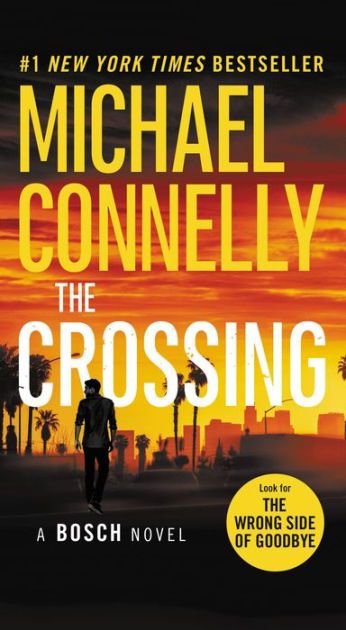
Really a fun read, and just different enough from the preceding books.
- Bosch is no longer with LAPD
- Mickey Haller - "The Lincoln Lawyer" is a major player in the story. And he's Bosch's half-brother
- Bosch works to exonerate someone accused of murder
-
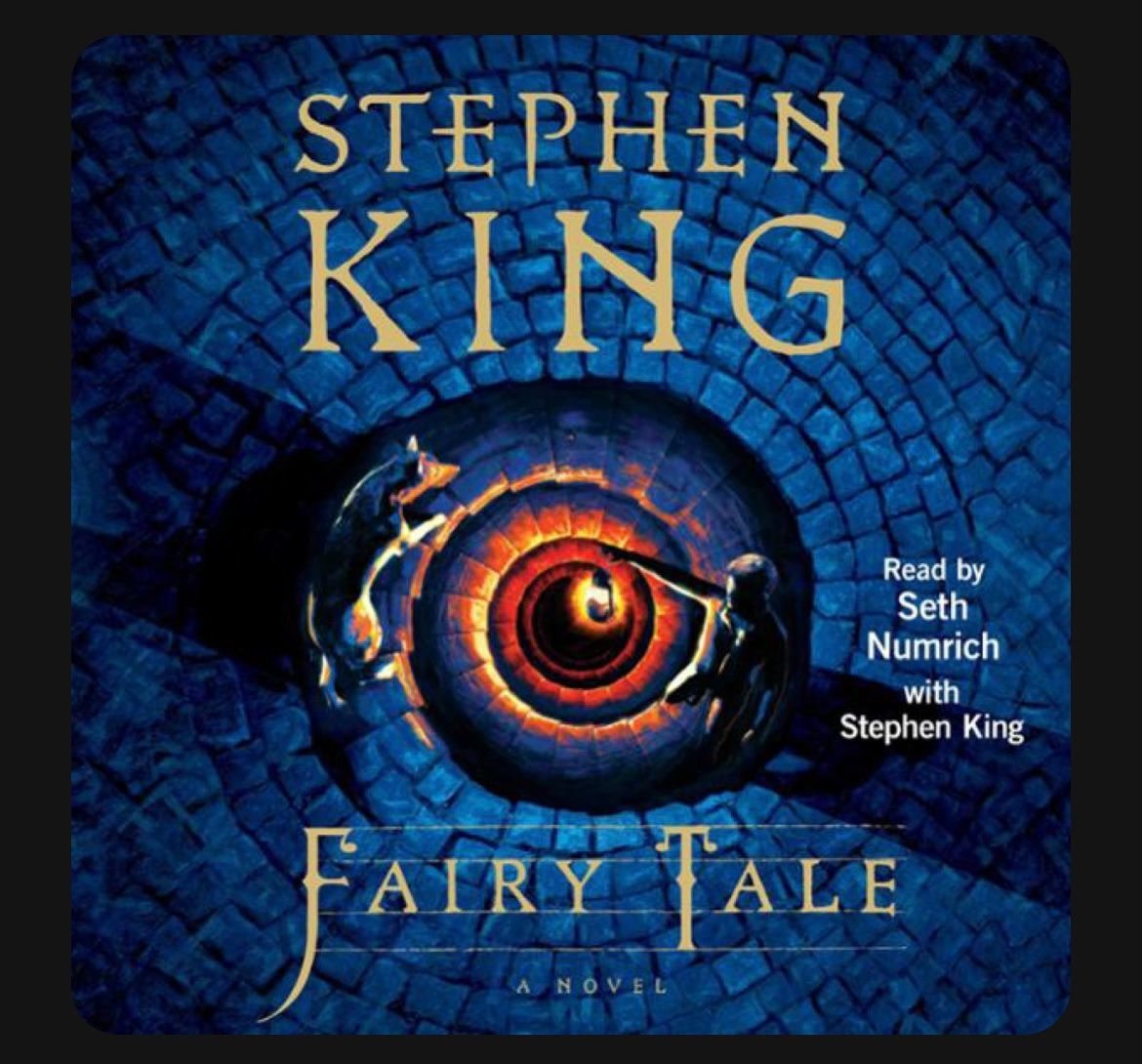
Fun. Kind of a "Stephen King does Grimm's Fairy Tales."
-
You know how you fall into a YouTube rabbit hole?
Well, that's happened with the Bosch Universe>
Finished "The Lincoln Lawyer" this AM, and started the next in the series.
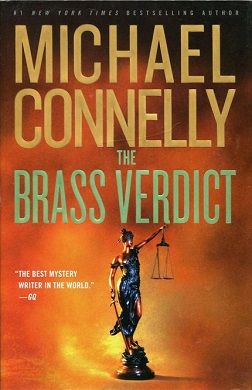
This is the book upon which the Amazon (?) series is grounded. It starts with the 2nd book of the Mickey Haller series (the first book, "The Lincoln Lawyer," having been done as a movie. About ¼ of the way thru.
Fun...
-
@Catseye3 said in What are you reading now?:
@taiwan_girl said in What are you reading now?:
(PS, I think people on this forum page read more than the general public, so maybe this is not applicable.)
Anyway, the "premise" is that you chose a classic book, and the app sends you a 20 minute portion to read each day.Yeah, I can't get too excited about such a thing. If reading is such a challenge that you have to be spoon fed segments according to the wisdom of some app, then maybe you should take up a hobby or something.
Many great novels of the 19th and 20th centuries were serialized. That's how most of our classics were originally read.
@Aqua-Letifer said in What are you reading now?:
@Catseye3 said in What are you reading now?:
@taiwan_girl said in What are you reading now?:
(PS, I think people on this forum page read more than the general public, so maybe this is not applicable.)
Anyway, the "premise" is that you chose a classic book, and the app sends you a 20 minute portion to read each day.Yeah, I can't get too excited about such a thing. If reading is such a challenge that you have to be spoon fed segments according to the wisdom of some app, then maybe you should take up a hobby or something.
Many great novels of the 19th and 20th centuries were serialized. That's how most of our classics were originally read.
Didn't know you were a Zane Grey fan.

-
Finally finishing Ian Toll’s trilogy about the war in the Pacific 1941 - 1945. Well researched and written narrative. Worth reading.
@Renauda said in What are you reading now?:
Finally finishing Ian Toll’s trilogy about the war in the Pacific 1941 - 1945. Well researched and written narrative. Worth reading.
Been awhile since I've read that. Now that you've reminded me, I'll have to do it again.
-
@Aqua-Letifer said in What are you reading now?:
@Catseye3 said in What are you reading now?:
@taiwan_girl said in What are you reading now?:
(PS, I think people on this forum page read more than the general public, so maybe this is not applicable.)
Anyway, the "premise" is that you chose a classic book, and the app sends you a 20 minute portion to read each day.Yeah, I can't get too excited about such a thing. If reading is such a challenge that you have to be spoon fed segments according to the wisdom of some app, then maybe you should take up a hobby or something.
Many great novels of the 19th and 20th centuries were serialized. That's how most of our classics were originally read.
Didn't know you were a Zane Grey fan.

@Jolly said in What are you reading now?:
@Aqua-Letifer said in What are you reading now?:
@Catseye3 said in What are you reading now?:
@taiwan_girl said in What are you reading now?:
(PS, I think people on this forum page read more than the general public, so maybe this is not applicable.)
Anyway, the "premise" is that you chose a classic book, and the app sends you a 20 minute portion to read each day.Yeah, I can't get too excited about such a thing. If reading is such a challenge that you have to be spoon fed segments according to the wisdom of some app, then maybe you should take up a hobby or something.
Many great novels of the 19th and 20th centuries were serialized. That's how most of our classics were originally read.
Didn't know you were a Zane Grey fan.

Zane Grey's badass. Not my thing, but great nonetheless.
-
@George-K said in What are you reading now?:
Where to begin?
George, look here: https://www.zgws.org/zgwsstrt.php
-
@George-K said in What are you reading now?:
OK - I'll admit it. Never read any Zane Grey.
Where to begin?
I only read the classic, Riders of the Purple Sage, but it was awesome.
-
Finished this today. Nice, involved, mystery with a good twist at the end. The book introduces Jack McEvoy, a reporter who appears in a few Bosch books.
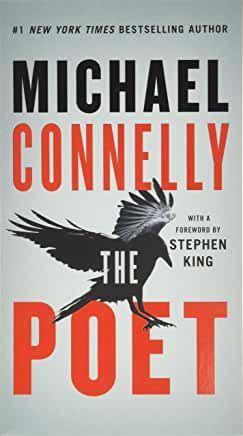
Gonna pick this up tomorrow. I enjoyed the series, so it'll be interesting. I read one of Steinhauer's other books ("The Bridge of Sighs") and it was...okay. Hope this doesn't disappoint.
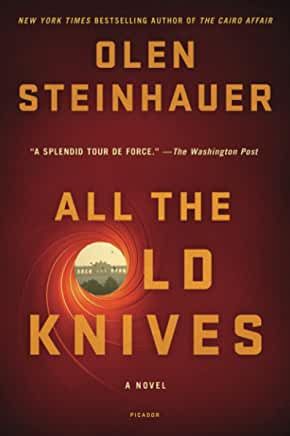
-
@George-K said in What are you reading now?:
Where to begin?
George, look here: https://www.zgws.org/zgwsstrt.php
-
"All The Old Knives?" Meh. The movie was actually better.
"Riders of the Purple Sage?" Wonderful prose and fabulous descriptions. There was a TNT movie made based on the book (one of several) starring Ed Harris that I'm told was faithful to the book. I'll try to seek it out. Grey left the ending kind of ambiguous as to what happens to the protagonist. Supposedly that's explained in "The Rainbow Trail." I might pick that up soon.
But in the meantime, this is next:
I loved neurology when I was a student, so this might be fun.
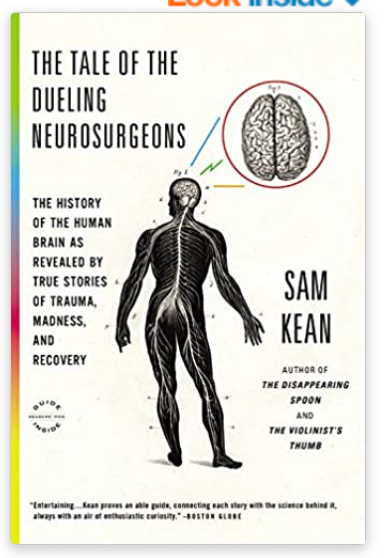
Early studies of the human brain used a simple method: wait for misfortune to strike -- strokes, seizures, infectious diseases, horrendous accidents -- and see how victims coped. In many cases their survival was miraculous, if puzzling. Observers were amazed by the transformations that took place when different parts of the brain were destroyed, altering victims' personalities. Parents suddenly couldn't recognize their own children. Pillars of the community became pathological liars. Some people couldn't speak but could still sing.
In The Tale of the Dueling Neurosurgeons, Sam Kean travels through time with stories of neurological curiosities: phantom limbs, Siamese twin brains, viruses that eat patients' memories, blind people who see through their tongues. He weaves these narratives together with prose that makes the pages fly by, to create a story of discovery that reaches back to the 1500s and the high-profile jousting accident that inspired this book's title.
With the lucid, masterful explanations and razor-sharp wit his fans have come to expect, Kean explores the brain's secret passageways and recounts the forgotten tales of the ordinary people whose struggles, resilience, and deep humanity made neuroscience possible.
I enjoyed Oliver Sacks' books - so this might an interesting companion.
-
Blurbs I Never Finished Reading
With charming and moving anecdotes from his experiences in a tight-knit community, an undertaker . . . (The Undertaking)
Ember is a cupcake-baking werewolf who . . . (Huntress Born)
A small cat with a big job, Mr. Fluffikins was . . . (Paranormal Temp Agency)
What is the meaning of life? (What’s It All About?)
How can we turn the American economy around? (Building the New Economy with Forward by Bernie Sanders)
A zoologist crafts a detailed portrait of the timber rattlesnake . . . yeah, no. (America’s Snake)
After her brother is transformed into a chipmunk . . . (A Chip on Her Shoulder)
A Fields medalist illuminates his pioneering work in geometric analysis . . . Yuh, I’ll get right on that. (The Shape Of A Life)
A doctor offers an insider’s look at life in an emergency room . . . oh, hellz no. (The Night Shift)
As a distant star goes supernova, it sends an EMP towards Earth — and when it finally strikes, civilization collapses, . . . yeah, yeah, yeah. (Dark End)
This offbeat and thoroughly delightful guide to housework makes doing chores seem fun, exciting, and rewarding . . . Tchyeah. (How to Get Things Really Flat)
Didn’t even get past the title on this one. (Twins of Evil)
An astronomer explores five potential scenarios for finding extraterrestrial life . . . Having enough trouble with this one, thanks. (All These Worlds Are Yours)
This eye-opening read argues that many of today’s scientific results can’t be trusted . . . No duh? (Science Fictions)
An enormous comet, more destructive than any the world has ever seen, threatens Earth. The fate of humanity depends upon a select few — including the president of the United States . . . well, we’re sure fucked, aren’t we? (The Inner Circle)
This “fascinating and smartly written” book explores the history and nature of beavers . . . [giggle]; come on, Bookbub, this is a family list! (Once They Were Hats)
Do you consider yourself particularly empathetic? . . . less so every day, baby. (The Space In Between)
Are individualism and extreme competition jeopardizing our future? – GMAFB. (Out Of The Wreckage)
This scientific exploration of humanity’s connection with trees . . . remembering the Smothers Brothers singing “I Talk To The Trees” and Tommy stops singing and rolls his eyes and stamps on the stage floor and says, ‘Hello, Stage! You used to be a tree, didn’cha?’ (The Heartbeat of Trees)
-
"All The Old Knives?" Meh. The movie was actually better.
"Riders of the Purple Sage?" Wonderful prose and fabulous descriptions. There was a TNT movie made based on the book (one of several) starring Ed Harris that I'm told was faithful to the book. I'll try to seek it out. Grey left the ending kind of ambiguous as to what happens to the protagonist. Supposedly that's explained in "The Rainbow Trail." I might pick that up soon.
But in the meantime, this is next:
I loved neurology when I was a student, so this might be fun.

Early studies of the human brain used a simple method: wait for misfortune to strike -- strokes, seizures, infectious diseases, horrendous accidents -- and see how victims coped. In many cases their survival was miraculous, if puzzling. Observers were amazed by the transformations that took place when different parts of the brain were destroyed, altering victims' personalities. Parents suddenly couldn't recognize their own children. Pillars of the community became pathological liars. Some people couldn't speak but could still sing.
In The Tale of the Dueling Neurosurgeons, Sam Kean travels through time with stories of neurological curiosities: phantom limbs, Siamese twin brains, viruses that eat patients' memories, blind people who see through their tongues. He weaves these narratives together with prose that makes the pages fly by, to create a story of discovery that reaches back to the 1500s and the high-profile jousting accident that inspired this book's title.
With the lucid, masterful explanations and razor-sharp wit his fans have come to expect, Kean explores the brain's secret passageways and recounts the forgotten tales of the ordinary people whose struggles, resilience, and deep humanity made neuroscience possible.
I enjoyed Oliver Sacks' books - so this might an interesting companion.
@George-K said in What are you reading now?:

It's...okay. Like many books of this ilk, it tries to be at least mildly scientific while a large part of it is the "freak show" aspect of these peoples' suffering.
Knowing a little neuroanatomy, I found parts of it a bit boring and repetitive.
However, the chapters on memory and its failings I found fascinating.
For the layman, not a bad read. For me, 3 stars out of 5.
-
That was typical Connelly. Good story, and perhaps a bit more involved than his other tales.
(This is not a "Bosch" book, by the way).
Having read "All The Old Knives" and being disappointed by it, I really wanted to give Steinhauer another shot. He's written a series of books based on one character. So, I started this today.
"Milo Weaver used to be a “tourist” for the CIA—an undercover agent with no home, no identity—but he’s since retired from the field to become a middle-level manager at the CIA’s New York headquarters. He’s acquired a wife, a daughter, and a brownstone in Brooklyn, and he’s tried to leave his old life of secrets and lies behind.
But when the arrest of a long-sought-after assassin sets off an investigation into one of Milo’s oldest colleagues and exposes new layers of intrigue in his old cases, he has no choice but to go back undercover and find out who’s holding the strings once and for all."
